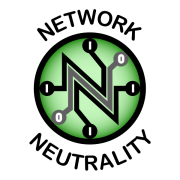The internet is awesome. I think we can all agree on that, right? Maybe…?
Sure, we complain about it a lot. We wonder what constant information and social media does to us as a species. But it would be seriously obstinate to insist that the internet hasn’t benefited us a great deal.
One of the best things about that internet is that it’s basically decentralized. Nobody owns it. Nobody runs it. That freedom has both positive and negative aspects, but in the long run, it has brought great innovations to all of us. Had the internet been a less free and open system it is possible that such innovation would have been stifled.
That freedom and openness is now in danger thanks to AT&T. Under the guise of consumer friendliness they’ve announced “Sponsored Data”. Companies can pay to have their websites and services not count against AT&T subscribers’ data plans.
Let’s say, for example, that Facebook pays AT&T for this. That means AT&T subscribers can use Facebook as much as they like without it costing them any precious data.
Sounds like a pretty good deal for AT&T customers, right?
Well, yeah. On the surface it seems like a pro-consumer move. In reality, this could turn out to be one of the worst things AT&T has ever done. And that’s saying a lot. With this move, AT&T is opening the floodgates for a non-neutral internet.
What the heck does that mean? Glad you asked.

Net neutrality is one of the founding principles of the internet. It basically means that all traffic on the internet is treated equally. Nothing gets greater priority than anything else. The internet has been and is supposed to be data agnostic. It doesn’t matter what website is loading. Internet protocol assigns them the same priority. The network itself is neutral.
This means that a multi-billion dollar company like Google doesn’t have an inherent advantage over somebody hosting a website from a homemade server in their basement. Sure, Google’s money counts because they can afford faster servers, more servers, and advertising campaigns. But there’s nothing about the structure of the internet that gives Google (or any other giant company) a fundamental advantage.
AT&T’s new plan will change that. AT&T subscribers will no longer have access to a neutral internet. Sponsored Data will train consumers to prioritize “Sponsored” websites – websites who have paid for preferential treatment – over other websites.
This is a very, very bad trend.
This sort of alteration to a network gives service providers a lot more power over the internet and their users than they currently possess. Suddenly we enter a world where to be really competitive online companies have to pay AT&T… and Verizon… and Sprint… and that’s just in the US! Were this trend to catch on in other nations, the cost of doing business would increase even more.
Given the importance of the internet to modern life, service providers should function like utility companies: providing you with bandwidth and charging you accordingly just like electric, gas, and water. Sponsored Data is a step in the opposite direction. It puts AT&T (and other telecoms should they follow suit) in the position of a gatekeeper. If your company hasn’t payed the Sponsored Data tax, you may lose users to those who have. Think about how this might apply to political, social, or religious organizations. Censorship by another name is still censorship.
This isn’t about “haves” and “have-nots.” This is about creating an extra barrier to climb over in order to be competitive online. It’s completely artificial. This is a problem that doesn’t have to exist but it will entirely because of the greed and shortsightedness of telecommunications companies.
The neutral internet is a wonderful thing and it needs to be preserved. I’m generally not one for seeking government solutions, but that is what we need in this case.
A few years back the FCC ruled on net neutrality. Wired networks (i.e. the internet service you get at home) were required to be neutral, but wireless networks (i.e. the internet you get via mobile phone) were exempted as a compromise. That was a mistake. Wireless internet is a huge market and is only going to grow in importance.
We need Congress to act on network neutrality. That’s probably too much to hope for since Congress isn’t exactly an effective legislative body these days. And they haven’t been very good at writing laws concerning technology in the past. Don’t forget the massive armada of telecom lobbyists who will fight tooth and nail opposing such a bill. Unfortunately, the cards are stacked against the internet remaining neutral.
Please get the word out. If you value the internet as a tool, as a platform, or even just for the entertainment value – please tell your friends and tell your representatives in Congress.
I’ve already contacted my representative and both senators about this topic. I never do that, guys. That’s how serious I am.